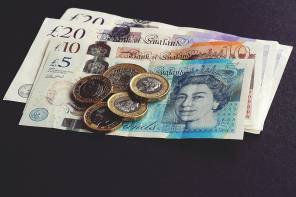

The prime minister has U-turned on corporation tax after sacking Kwasi Kwarteng as chancellor.
In a speech this afternoon, Liz Truss made the government's second U-turn in as many weeks as she rowed back on her plans to cancel the increase in corporation tax, which was announced mere weeks ago.
“I want a country where people can get good jobs, new businesses can set up, and families can afford an even better life...that is why from day one I have been ambitious for growth," Truss said.
But she acknowledged that part of the "mini" Budget had gone "further and faster" than markets had expected, and so would change direction on the corporation tax policy.
Former chancellor Kwarteng had originally got rid of a planned rise in corporation tax, which had initially been introduced by Rishi Sunak.
Kwarteng said corporation tax would not rise to 25 per cent as expected, and would remain at 19 per cent, however Truss said this would now not happen, adding £18bn a year to Treasury coffers.
Business leaders have hit out at the potential rise, saying it is a tax levied on profits at a time when many companies are facing recession.
Truss appointed Jeremy Hunt as chancellor earlier today, after sacking Kwarteng.
Paresh Raja, chief executive of Market Financial Solutions, said the whole episode has tarnished the reputation of Truss and her government to such an extent that "it’s hard to see how she can remain in power" without calling a general election.
“Truss and Kwarteng tried to punch their way out of trouble with a bold, “unashamedly pro-growth” mini-budget in late September," he said.
"But in the three weeks since, the flip flopping over policies and criticism they have received – not to mention the need for Bank of England intervention in the market – has simultaneously eroded confidence in their leadership and damaged the UK economy significantly."
sally.hickey@ft.com



